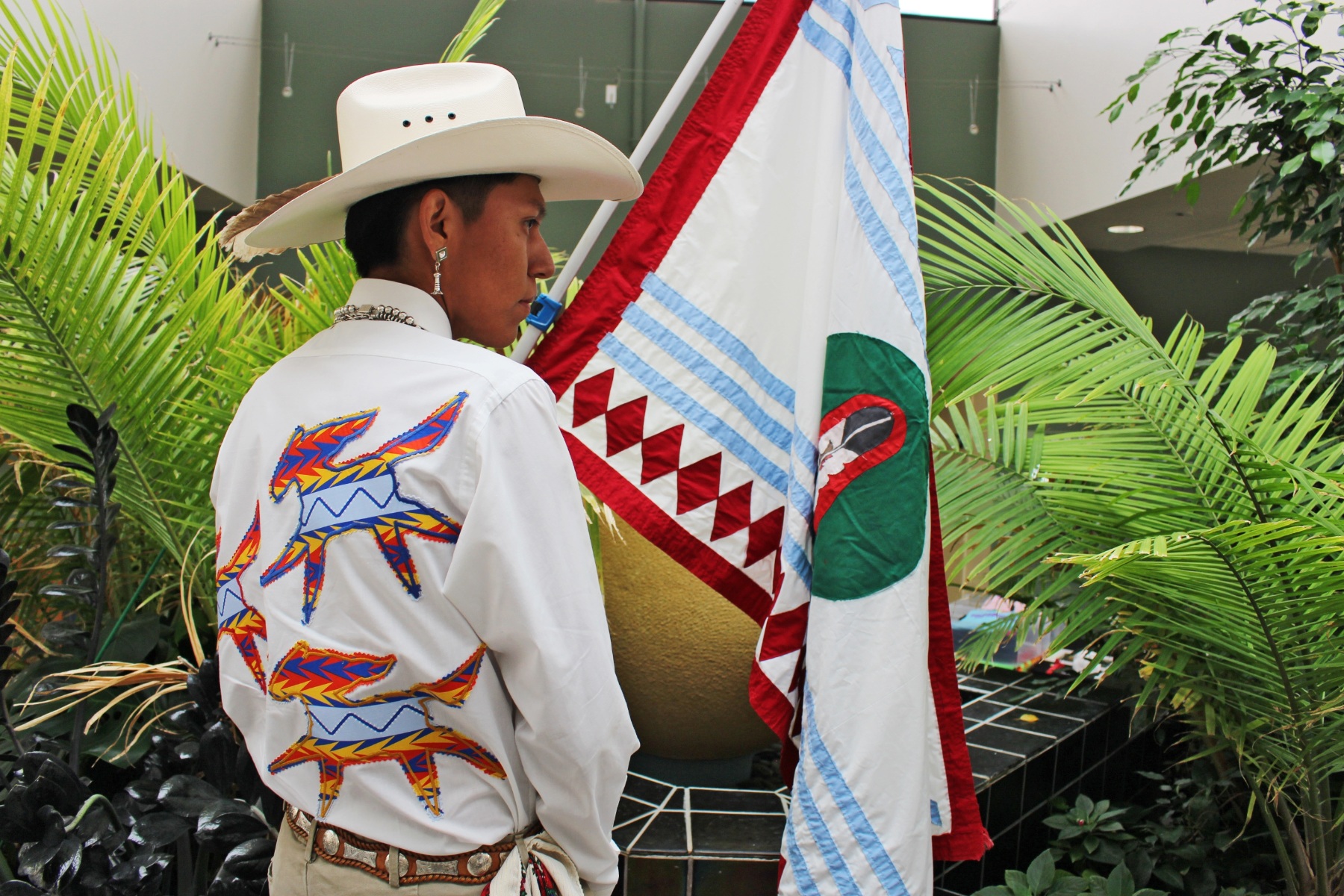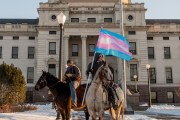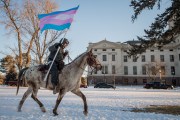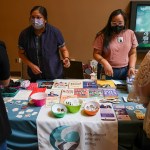ELKO, Nev. — At the Two Spirit Conference in northern Nevada in June, Native Americans gathered in support of the LGBTQ+ community amid federal and state rollbacks of transgender protections and gender-affirming health care.
“I want people to not kill themselves for who they are,” said organizer Myk Mendez, a trans and two-spirit citizen of the Fort Hall Shoshone-Bannock Tribes in Idaho. “I want people to love their lives and grow old to tell their stories.”
“Two-spirit” is used by Native Americans to describe a distinct gender outside of male or female.
The conference in Elko reflects how some tribal citizens are supporting their LGTBQ+ community members as President Donald Trump rolls back protections and policies. In March, the National Indian Health Board, which represents and advocates for federally recognized Native American and Alaska Native tribes, passed a resolution declaring tribal sovereignty over issues affecting the Native American community’s health, including access to gender-affirming care.
The resolution calls on the federal government to preserve and expand programs that support the health and well-being of two-spirit and LGBTQ+ Native Americans. Tribes and tribal organizations are navigating how to uphold their sovereignty without jeopardizing the relationships and resources that support their communities, said Jessica Leston, the owner of the Raven Collective, a Native public health consulting group, and a member of the Ketchikan Indian Community.
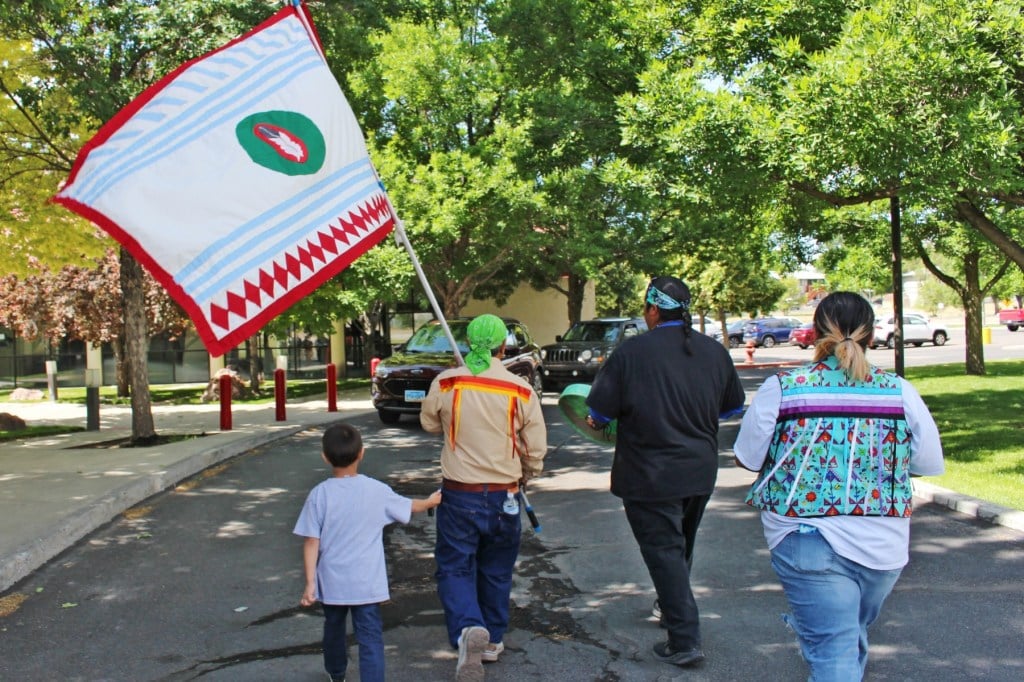
In January, Trump signed an executive order recognizing only two sexes — male and female — and another to terminate diversity, equity, and inclusion programs within the federal government.
An Indian Health Service website describing two-spirit people was removed this year but restored following a court order. The page now has a disclaimer at the top that declares any information on it “promoting gender ideology” is “disconnected from the immutable biological reality that there are two sexes, male and female.”
-
Read Next:
Two-spirit is not a sexual orientation but refers to people of a “culturally and spiritually distinct gender exclusively recognized by Native American Nations,” according to a definition created by two-spirit elders in 2021. According to two-spirit leaders, people who did not fit into the Western binary of male and female have lived in their communities since before colonization.
Already, tribal citizens and leaders say some people have had trouble accessing gender-affirming care in recent months, with some community members being denied hormone treatments or having their medications delayed, even in places where gender-affirming care remains legal. Panic has spread, and tribal citizens have considered leaving the country.
- The Two Spirit Conference agenda included speakers who talked about the trauma that two-spirit individuals may endure and how to create healing. Other activities included a fashion show that highlighted local Native American designers.
-
Colleen Couchum, a member of the Te-Moak Tribe of Western Shoshone, created this skirt that was gifted to a speaker.
(Jazmin Orozco Rodriguez/KFF Health News)
“There is a chilling effect,” said Itai Jeffries, who is trans, nonbinary, and two-spirit, of the Occaneechi people from North Carolina, and a consultant for the Raven Collective.
Mendez said he requested hormone treatment at his local Indian Health Service clinic at the end of June and was told by his provider that the facility has had trouble receiving the treatment for patients.
Lenny Hayes, a two-spirit citizen of the Sisseton-Wahpeton Oyate in South Dakota, said the Indian Health Service clinic on the reservation also isn’t dispensing hormone treatment, though it is legal for people 18 and older. Hayes is the owner and operator of Tate Topa Consulting and provides educational training on two-spirit and LGTBQ+ Native Americans and Alaska Natives.
The National Congress of American Indians passed a resolution in 2015 to encourage the creation of policies to protect two-spirit and LGBTQ+ communities. And the organization adopted a resolution in 2021 to support providing gender-affirming care in Indian Health Service, tribal, and urban facilities.
The National Indian Health Board’s resolution cites homophobia and transphobia as contributing to higher rates of truancy, incarceration, self-harm, attempted suicide, and suicide among two-spirit young people. The board also lists health disparities among the broader Native LGBTQ+ population, including increased risks of anxiety, depression, and suicide.
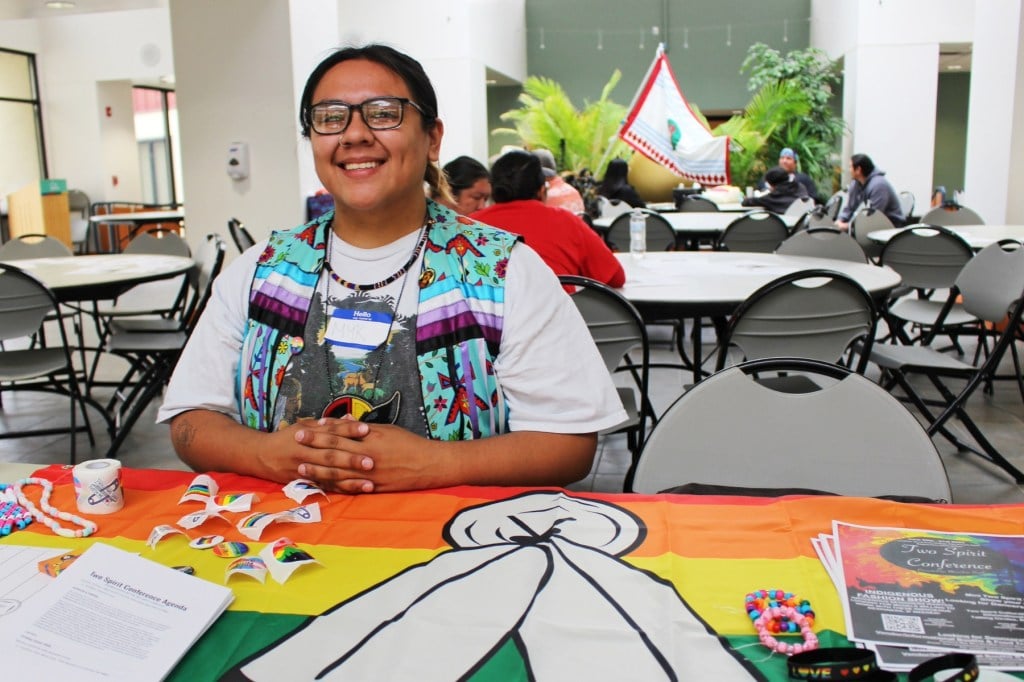
Two-spirit and LGBTQ+ Native American and Alaska Native young people are particularly vulnerable to depression, suicidality, and sexual exploitation. In Minnesota, a 2019 state survey found that two-spirit and LGBTQ+ Native American and Alaska Native students had the highest rates of those ages 15-19 who responded “yes” to having traded sex or sexual activity for money, food, drugs, alcohol, or shelter.
Tribal leaders are also concerned that Medicaid cuts recently approved in Trump’s budget law will undercut efforts to expand testing and treatment for HIV infection in Native American communities.
The rates of HIV diagnosis among Native American and Alaska Native gay and bisexual men increased 11% from 2018 to 2022, according to the Centers for Disease Control and Prevention.
Despite this increase, Native American and Alaska Native gay and bisexual men are among the groups with the least access to HIV tests outside of health care settings, such as community-based organizations, mobile testing units, and shelters.
As tribes respond to state and federal regulations of two-spirit and LGBTQ+ people, organizations and communities are focused on providing information and resources to protect those in Indian Country, even from the president.
“He will never, ever wipe out our identity, no matter what he does,” Hayes said.
KFF Health News is a national newsroom that produces in-depth journalism about health issues and is one of the core operating programs at KFF — the independent source for health policy research, polling, and journalism.
